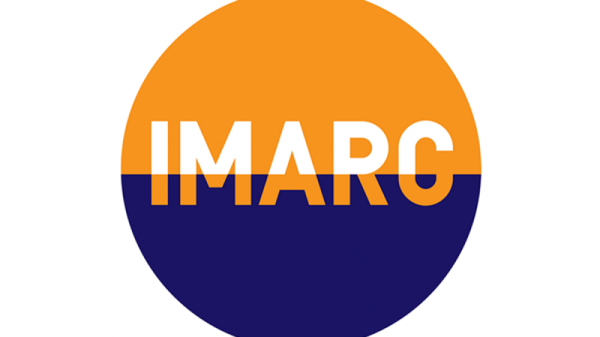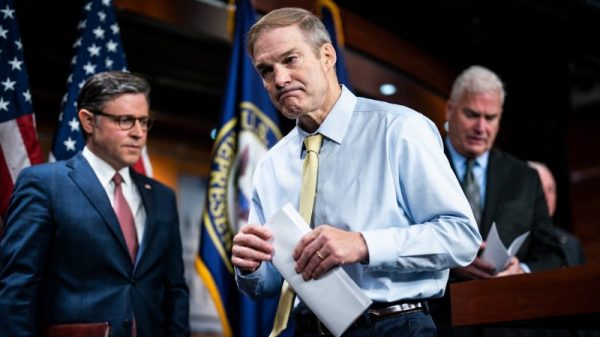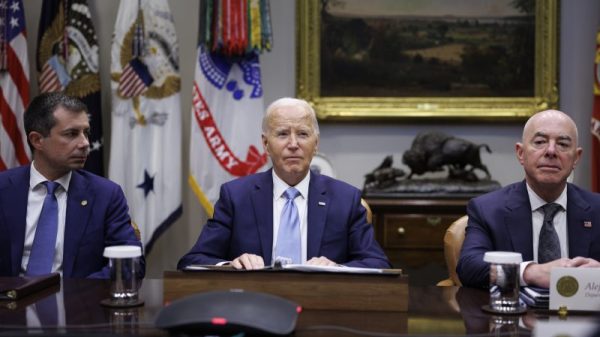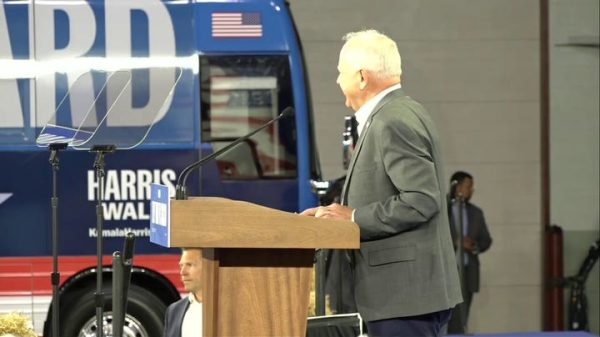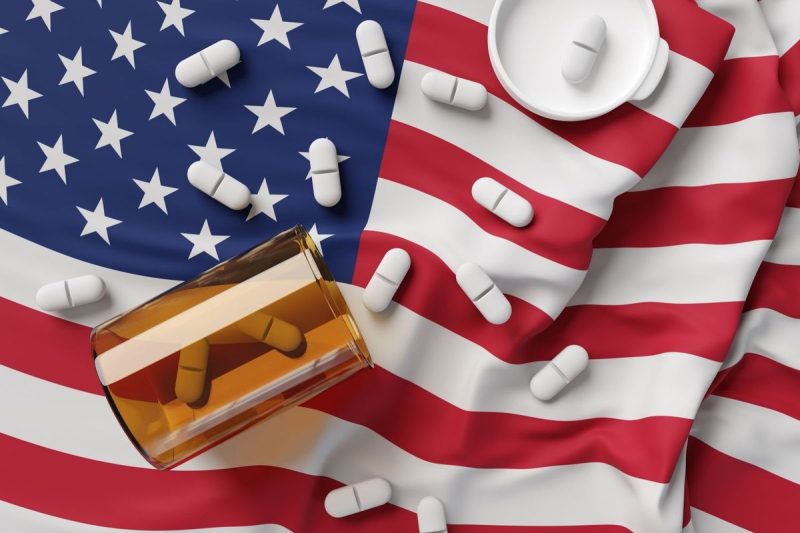The exorbitant cost of pharmaceutical drugs in the US has been a contentious issue for years, with the Republican and Democrat parties overtly at odds on the best way to lower drug prices.
Despite the best efforts of lawmakers on both sides of the aisle, prescription drug prices are still on the rise. Figures from the US Department of Health and Human Services show a 15.2 percent increase in the cost of prescription drugs from 2022 to 2023, with an average of US$590 per drug.
In the lead up to the 2024 US general election, the pharmaceutical industry is buttering its bread on both sides with nearly equal contributions to both parties. Citing data from OpenSecrets, KFF Health News reported in late August that drug companies had donated US$4.89 million to Democrats’ coffers and US$4.35 million to Republicans.
About one-third of the total pharma company campaign contributions are attributable to the three top donors: Pfizer (NYSE:PFE), Merck (NYSE:MRK) and Eli Lilly & Co. (NYSE:LLY).
Narrowing down on the presidential candidates, data retrieved from OpenSecrets on October 2 shows that Vice President Kamala Harris has been the bigger beneficiary of donations, receiving US$1.12 million compared to US$204,748 for former President Donald Trump. Both candidates have promised to tackle the high price of prescription drugs.
Surprisingly, the issue only came up once during the September 10 presidential debate between Harris and Trump, when Harris discussed it in response to a question from moderators about her proposed healthcare plan.
How would a potential Harris administration tackle the challenge of lowering prescription drug prices? Would pharmaceutical companies fare better under a second Trump administration?
First, let’s take a look at the healthcare policies and initiatives enacted under Trump’s prior presidency and during the current Biden-Harris administration, and then we’ll examine the current platforms of the two candidates.
The Trump administration’s actions on healthcare and drug prices
Trump’s stance on lowering drug prices has been mostly at odds with the core of his fellow Republicans, which hamstrung his ability to implement his proposed policies.
Did Trump lower drug prices? Trump did have some success in lowering monthly insulin prices to US$35 for Medicare Part D plans, but only under a voluntary model. However, many of his other attempts failed to get off the ground for a variety of reasons.
“His efforts were largely fragmented and faced resistance from both the industry and lawmakers,” political strategist Sergio Jose Gutierrez, told KFF Health News. “The lack of a cohesive strategy and the limited ability to implement significant changes made his approach less effective compared to what a Harris-Walz administration could offer.”
Axios reports that while Trump’s staff did try to work with House Democrats on negotiating drug prices under Medicare, he would later reject the proposal, “embracing GOP arguments it would lead to fewer cures.”
One of Trump’s attempts at lowering drug prices was the Most Favored Nation model, which would have tied the cost of certain drugs under Medicare to their costs in other, comparable countries. However, it encountered roadblocks in the courts due to challenges from pharmaceutical companies and concerns about its impact on hospitals and practices. It was ultimately never implemented, and was rescinded by the Centers for Medicare & Medicaid Services in December 2021 following multiple comment periods.
Another healthcare move under Trump that faced opposition was a plan to import drugs from abroad, which was announced during his term but required Food and Drug Administration approval. Although in 2024 Florida ultimately became the first state to win federal approval to import prescription drugs from Canada, Health Canada has put up resistance, citing the need to safeguard the country’s own limited drug supply.
In another federal court challenge to the Trump administration, several Big Pharma companies — including Merck, Eli Lily and Amgen (NASDAQ:AMGN) — took issue with a US Health and Human Services (HHS) decree that televised drug ads must include the wholesale prices of the drugs advertised. As Reuters reported, the courts sided with the pharmaceutical companies’ argument that the HHS lacked the authority to force them to publicly disclose list prices and that the list prices could discourage people from seeking treatment.
With regards to the Obama-era Affordable Care Act (ACA), former President Donald Trump has been a vocal critic of it in the ongoing healthcare debate. During his time in office, his administration made several attempts to weaken the ACA. For example, according to KFF Health News, “In 2017, (Trump) unsuccessfully attempted to repeal and replace the ACA with various plans that would have increased the number of uninsured Americans to 51 million.”
The Biden-Harris administration’s actions on healthcare and drug prices
Even before Kamala Harris stepped into her role as US Vice President, she has been actively taking part in improving access to affordable healthcare and lower prescription drug prices. As a Senator, she guarded against Republican efforts to dismantle the ACA and co-sponsored the Medicare For All Act, which sought to establish a true single-payer healthcare model.
The Biden-Harris administration reversed the holes Trump tried to poke in the ACA; for example, restoring outreach and enrolment assistance as well as funding. On the flip side, Harris supported and the Biden administration approved Florida’s bid to access lower cost drugs from Canada.
In 2022, VP Harris helped to pass her administration’s Inflation Reduction Act (IRA), which includes an annual US$2,000 cap on total drug spending for Medicare beneficiaries as well as extending the US$35 cap on monthly insulin supplies put forward under Trump to Medicare Part B and all Medicare Part D recipients. On top of that, she cast the tie-breaking vote in the Senate in favor of legislation allowing Medicare to negotiate drug prices on the behalf of beneficiaries.
In August 2024, the government announced it had selected the first 10 drugs set to receive lower prices in 2026 — with discounts up to 79 percent — based on those negotiations. Many are indicated for diabetes and heart conditions, and are made by pharma giants such as Bristol-Myers Squibb (NYSE:BMY), Merck, AstraZeneca (NASDAQ:AZN), Novartis (NYSE:NVS,SWX:NOVN), Amgen and Johnson & Johnson (NYSE:JNJ). More drugs, specifically biologics, will face price cuts in 2028.
In terms of price regulation for drugs in the broader market, President Joe Biden warned drug companies back in December 2023 that if prices on certain drugs developed with federal funds become too high, the government may find it necessary to seize the patents and allow competitors to make them as well. “Drugmakers are almost certain to challenge the plan in court if it is enacted,” reported the Associated Press.
Harris’ 2024 healthcare and drug price platform
Now that Kamala Harris is out on the campaign trail, her healthcare and drug price platform is taking shape.
One of the policy goals of a Harris Administration is expanding the US$2,000 annual cap on prescription drug spending now enjoyed by Medicare recipients to all Americans with insurance. She said as much during her September 10 presidential debate with Trump.
“Since I’ve been vice president, we have capped the cost of prescription medications for seniors at $2,000 a year,” Harris said. “And when I am president, we will do that for all people.”
VP Harris has also vowed to protect the Affordable Care Act. “When I am president, we will do that for all people, understanding that the value I bring to this is that access to health care should be a right and not just a privilege of those who can afford it, and the plan has to be to strengthen the Affordable Care Act, not get rid of it,” she declared during the televised presidential debate.
Under Harris, the Democrats’ healthcare platform also includes ensuring prices for “brand-name and outlier generic drugs” don’t outpace the rate of inflation. The party is also keen on preventing Big Pharma from colluding on prices or manipulating the patent system.
As part of her campaign promises, Harris has also proposed to quicken the pace of lowering prescription drug prices for Medicare recipients. If elected, her administration will focus on speeding up negotiations on cutting costs on “some of the most expensive and most commonly used drugs by nearly 40 (percent) to 80 (percent),” so these discounts would come into play in 2026.
During the October 1 VP debate, Harris’ running mate Minnesota Governor Tim Walz reiterated her support for the ACA and held up the Medicare drug price negotiations under the Inflation Reduction Act as one of her great achievements during office.
‘Kamala Harris negotiated drug prices for the first time with Medicare. We have 10 drugs that will come online, the most common ones that’ll be there,’ he said.
Trump’s running mate, Ohio Senator JD Vance, made some spurious claims about prescription drug prices only being up by 1.5 percent during the whole of Trump’s first term compared to 7 percent during the Biden Administration.
CBS was quick to fact-check his statements, showing that the average annual cost of prescription drugs per person was up by 9 percent from 2017 to 2019 under Trump and up by 11 percent between 2020 and 2022 under Biden. Looking at median cost instead of average, the data shows that costs were down under both administrations.
Trump’s 2024 healthcare and drug price platform
During his presidential debate with VP Kamala Harris, Trump once again voiced his strong opposition to the Affordable Care Act: “Obamacare was lousy health care — always was. It’s not very good today.’
While he admits his administration was unable to repeal the ACA despite dozens of attempts that were blocked by Democrats, he would rather “just let it rot.”
When asked if he had any concrete healthcare plan for the country, he replied his team only has “concepts of a plan,” are considering “different plans” and would reveal more ‘in the not-too-distant future.’
Senator JD Vance didn’t provide much detail about his potential administration’s healthcare plan during his debate performance either, although he did promise ‘we’re going to cover Americans with pre-existing conditions’ when pressed by Walz about his opposition to ACA.
Some on the other side of the aisle have said all the public needs to know about Trump’s healthcare plan can be found in Project 2025, a policy initiative by the Heritage Foundation published in 2022. Since Ronald Reagan’s presidency, every four years the conservative think-tank has published a new batch of policy recommendations for the next Republican president.
Healthcare doesn’t get much space in the 900-plus page document, but what is addressed is the need to make dramatic changes to Medicaid, which serves low-income individuals and families, including repealing the law banning surprise medical billing. Also present are several directives aimed at curbing access to – and repealing FDA approval for – the abortion pill mifepristone, used in about half of US abortions, and the “week-after” contraceptive pill Ella. It also calls for the end of subsidies for stem cell or fetal cell research.
While Trump has disavowed Project 2025 and tried to distance himself from its authors, a large majority of its creators served in the first term of his administration. This includes prominent players such as Housing and Urban Development Secretary Ben Carson, acting Defense Secretary Chris Miller, deputy White House chief of staff Rick Dearborn, former Office of Management and Budget director Russ Vought and acting deputy secretary of the Department of Homeland Security Ken Cuccinelli.
Additionally, both Trump and the Heritage Foundation previously boasted that he enacted 64 percent of their recommendations within the first year of his presidency.
The 2024 GOP Platform document hosted on Trump’s campaign website states, “Healthcare and prescription drug costs are out of control. Republicans will increase Transparency, promote Choice and Competition, and expand access to new Affordable Healthcare and prescription drug options. We will protect Medicare, and ensure Seniors receive the care they need without being burdened by excessive costs.”
While VP Kamala Harris and former President Donald Trump may be on opposite sides of the debate when it comes to the Affordable Care Act, both candidates are supportive of bringing down prescription drug costs.
While KFF Health News notes that prescription drug prices have not been a topic at the forefront of Trump’s campaign, they did report that those close to him say he “would likely retain Medicare price negotiations unless the pharmaceutical industry can come up with something more compelling that they’d put on the table.”
However, Axios reports that a number of high-ranking Republicans are dead set on repealing the Medicare drug price negotiations set out under the IRA.
“Trump has pledged to ‘take on Big Pharma’ through administrative actions like tying what Medicare pays to prices in other developed nations,” said the news agency. “But he could still be open to repealing the IRA drug price measures, and his campaign isn’t elaborating.”
Other efforts a second-term Trump administration might take to reign in healthcare costs include placing caps on out-of-pocket insulin costs, importing US-made drugs that have been sold out of country and increasing competition among generic and biosimilar drugs.
According to KFF Health News, his administration may also seek to lower drug prices “in the Medicare 340B program, which requires drugmakers to provide outpatient drugs at reduced prices to eligible health organizations that serve lower-income and uninsured patients.”
It should be noted that in May 2024 US Court of Appeals for the District of Columbia ruled in favor of pharmaceutical companies, finding that they can limit their discounts under Medicare 340B.
As for the stalled Most Favored Nation model, one that is also supported by candidate Harris, Axios states that Trump has proposed taking executive action to make it a reality.
Investor takeaway
US federal election periods are often fraught with uncertainty for the life science sector. In the past, Republican administrations have been more favorable periods for pharmaceutical companies. However, as with most aspects of American politics and industry, Trump has changed the game. The election of either candidate poses risks for pharma stocks.
But, in terms of threats to drugmaker revenues and innovation, the Democrats’ push to more restrictive drug pricing regulations under Kamala Harris’ plans to expand the IRA present the bigger danger. The fact that nine out of the top ten pharma companies with the highest 2024 campaign contributions have donated more to the Democrats and VP Kamala Harris shows that the pharmaceutical industry is well aware of the risk and are hedging their bets. Since Harris is leading in the polls just a few weeks ahead of the election, currying favor with a future Harris-Walz administration may be in their best interest.
Securities Disclosure: I, Melissa Pistilli, hold no direct investment interest in any company mentioned in this article.

